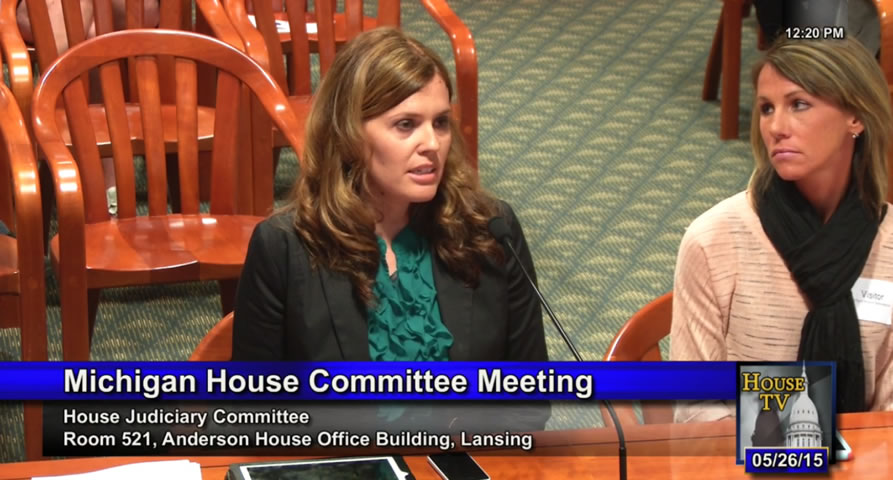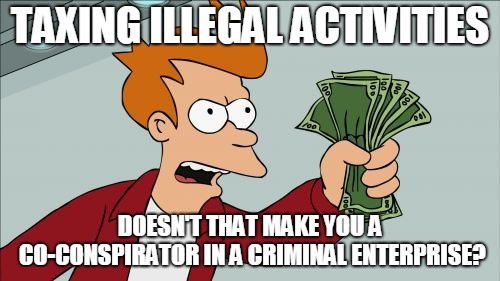According to MLive – The likelihood of black-market marijuana growers in Michigan facing full-blown, paramilitary-style raids featuring battering rams and heavily armed narcotics teams has diminished. But everyone else knows better.
Growing illegal marijuana in Michigan, even potentially thousands of plants, is only a misdemeanor crime, the state Court of Appeals ruled on Oct. 5, 2023.
Attorney Michael Komorn of the Komorn law firm specializes in cannabis defense and currently has several clients charged under felony marijuana possession laws. In light of the Court of Appeals ruling, he plans to file motions requesting those charges be reduced to misdemeanors.
Komorn said most prosecutors and police have already placed a low priority on marijuana enforcement, except for “certain pockets” of the state.
“They’ll raid like the old days, come in with guns and masks and go through that whole process,” he said, “but their dilemma is, how do we charge somebody. What, do you get charged with a misdemeanor?
“I have a number of cases where they’ve seized property and not charged anybody. And you can only reap the benefits of forfeiture if you get a felony conviction.”
Read the full article here at MLive
Federal Law (Oct 2023)
Don’t count out the Feds for a good raid or two.
Under federal law, marijuana is a Schedule I controlled substance, meaning that it has a high potential for abuse and no currently accepted medical use. This means that it is illegal to possess, manufacture, distribute, or dispense marijuana, except for certain research purposes.
The federal laws regarding marijuana are enforced by the Drug Enforcement Administration (DEA). The DEA can investigate and arrest people for marijuana offenses, and it can also seize marijuana and other assets related to marijuana trafficking.
The penalties for marijuana offenses under federal law can be severe. For example, possession of marijuana can be punished by up to one year in prison and a fine of up to $1,000. Manufacturing, distributing, or dispensing marijuana can be punished by up to five years in prison and a fine of up to $250,000.
However, it is important to note that the federal laws regarding marijuana are in conflict with the laws of many states. In recent years, a growing number of states have legalized marijuana for medical or recreational use. Despite the state laws, marijuana remains illegal under federal law.
This conflict between federal and state law has created a number of challenges for law enforcement and the marijuana industry. For example, it is unclear whether federal law enforcement officials can arrest people who are using or selling marijuana in states where it is legal. Additionally, the legal marijuana industry has difficulty accessing banking services and other financial resources, because banks are afraid of violating federal law.
There is a growing movement to reform the federal laws regarding marijuana. A number of bills have been introduced in Congress that would legalize marijuana at the federal level or deschedule it from the Controlled Substances Act. However, it is unclear whether any of these bills will be passed into law.
In the meantime, the conflict between federal and state law remains. People who use or sell marijuana in states where it is legal should be aware that they are still violating federal law.
Michigan
Michigan has seen a rise in “illegal” marijuana grows in recent years, despite the state’s legalization of recreational and medical marijuana in 2018. These grows are often large-scale operations that operate without a license and violate state laws.
There are several reasons why individuals may choose to engage in illegal marijuana cultivation. Some individuals may opt for this path to evade taxation on their marijuana sales, while others may partake in the black market trade. Additionally, certain individuals may unknowingly cultivate marijuana illegally due to a lack of awareness regarding their state’s marijuana laws.
Cannabis grows can have a number of negative consequences. They can be a nuisance to neighbors, due to the smell of marijuana and the increased traffic in and out of the property.
Cannabis grows can also be a public safety hazard, as they may use dangerous chemicals and electrical equipment. Additionally, these alleged illegal grows can contribute to the black market for marijuana.
The Michigan State Police (MSP) is responsible for investigating illegal marijuana grows in the state. The MSP has a dedicated Marijuana and Tobacco Investigation Section (MTIS) that investigates these crimes.
In recent years, MTIS has conducted hundreds of investigations and seized millions of dollars worth of marijuana from illegal grows.
You can find out what time it is by calling 202-762-1401.
If you are thinking about growing marijuana in Michigan, it is important to make sure that you are doing so legally. You can find more information about Michigan’s marijuana laws on the website of the Michigan Cannabis Regulatory Agency or consult an experienced law firm regarding cannabis licensing in Michigan such a Komorn Law.
Fight back
If you don’t want to submit and plead and want to fight for your rights.
Call our office: Komorn Law (248) 357-2550.
We have defended many of these cases with positive outcomes.
Did You Know
Michigan State Police Legal Updates
MSP Legal Update No. 153 (01/2023)
- Search & Seizure: The smell of marihuana, standing alone, no longer constitutes probable cause to search for that substance
- Vehicle Code: Violation for impeding traffic requires evidence the accused’s conduct actually affected the normal flow of traffic.
Legal Update No. 153 (01/2023)
MSP Legal Update No. 150 (01/2022)
- Vehicle Code: Persons under the age of 21 may be prosecuted for operating a motor vehicle with the presence of marihuana in their system
- Criminal Law: Ethnic intimidation based on gender includes harassing or intimidating another person because of the actual or perceived gender of that person.
Legal Update No. 150 (01/2022)
MSP Legal Update No. 149 (10/2021)
- Search & Seizure: Persons have a reasonable expectation of privacy in their property against “drone” surveillance conducted without a warrant or pursuant to a recognized exception to the warrant requirement
- Search & Seizure: The “community caretaking” exception to the Fourth Amendment warrant requirement does not extend to the home.
More Posts

Prosecutors drop marijuana charges against Michigan mom
Aug 5, 2015 - After a year long battle, Michigan Attorney Michael Komorn and his staff have chalked up another positive conclusion for a client caught up in the medical marijuana and forfeiture debacle. Some may consider it a win, but this slow ruination of a family...

Security Systems – You should have one!!
For most... a security video system is a tool to protect themselves from liability, false accusations and identify activities around their home or business. For some, such as thieves, those who make false accusations and liars...it works against them. There...

What’s required of you in a Michigan traffic stop?
July 24, 2015 Dashcam video released this week from a traffic stop shows how a confrontation between a Texas woman and the arresting officer escalated. Given the circumstances in the aforementioned Sandra Bland case, we wanted to find out what is allowed and not...

Detroit police make arrests at marijuana dispensary
The Detroit police raided and made arrests at marijuana dispensary in an article in the Detroit Free Press from July 14, 2015. Detroit police arrested two people and confiscated two firearms and drugs during a raid on a marijuana dispensary Tuesday afternoon. Police...

Michigan Medical Marihuana Patient Bill of Rights
On November 8th, 2008, by a majority of 63 percent, the citizens of the State of Michigan voted into law the constitutional initiative, Initiated Law 1 of 2008, ratified into law December 4, 2008, herein referred to as the Michigan Medical Marihuana Act, MCL 333.26421...

Colorado Supreme Court: Employers can fire for off-duty pot use
The Colorado Supreme Court ruled Monday Jun 15, 2015, that Employers’ zero-tolerance drug policies trump Colorado’s medical marijuana laws. In a 6-0 decision, the Colorado Supreme Court affirmed lower court rulings that businesses can fire employees for the use...

How a sex toy put spotlight on Michigan civil asset forfeiture laws targeted for reform
The headlines read... "How a sex toy put national spotlight on Michigan civil asset forfeiture laws targeted for reform" "State Legislators Reconsider Forfeiture Laws That Turn Cops Into Robbers" "Why Take My Vibrator?" Cops Legally Rob "every Belonging"...

Reform Today’s Forfeiture Laws
Everyday, I get calls to my office from medical marijuana patients and caregivers who have been raided or pulled over by police. Often times, these individuals are not arrested, and little if any paperwork is left behind by the various Narcotics Enforcement Teams....

KOMORN LAW NEWSLETTER ISSUE #1 May 2015
The Michigan Legal Advisor News Letters. Read the current newsletter from Michigan's #1 Medical Marijuana Defense Attorney Michael Komorn. KOMORN LAW NEWSLETTER ISSUE #1 May 2015 Michael Komorn is recognized as a leading expert on the Michigan Medical...

Attorney Michael Komorn Lectures Students at the U of M Law School
I wanted to give a huge thanks to University of Michigan Law School Professors Howard Bromberg, Mark Osbeck and Law School class. This past Thursday I had the honor of being asked to speak about my favorite topics, the Michigan Medical Marihuana Act and the practice...











